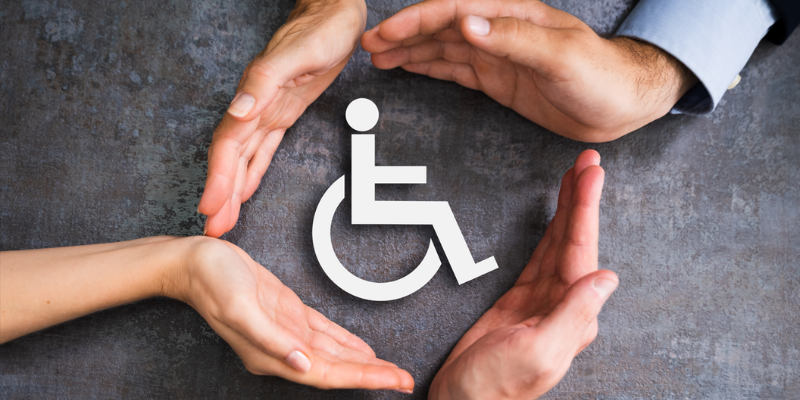Regular readers of the didlaw blog will recall that a few weeks ago I reviewed the disability employment gap which focuses on the rates of disabled people compared to non-disabled people in employment. We learned that the impact of the pandemic had reversed the trend that saw the gap narrowing. Data published in April this year highlighted that 400,000 disabled people were unemployed which was 76,000 more than the number from one year earlier.
Research by the BBC has now found that thousands of people living with disabilities in the UK have reported that the Covid pandemic has had a profound, and some cases devastating, impact on their lives. Of the 3,300 people taking part in the survey key findings of the research were:
- 2,604 deaf and disabled people said their mental health had deteriorated.
- 2,427 reported that their disability had got worse.
- 683 reported that the pandemic had negatively affected their access to treatment – this number had seen all of their appointments cancelled.
- 241 had not let the house at all.
The BBC report, published last week, highlighted that many had struggled to obtain basic support such as food delivery, financial support and social care. The huge changes to everyday lives had placed profound challenges on some who were left isolated with limited access to support networks.
Of particular concern were stories shared from young people with autism and other disabilities who had contemplated or attempted suicide.
There were further accounts of those with multiple disabilities requiring regular multi-disciplinary support from different medical teams (such as occupational therapy, physiotherapy, hearing reviews and eye checks) having all of their appointments cancelled.
One woman surveyed was advised that if she contracted COVID-19 not to go to hospital as this would put her at more risk. There were other horrifying reports of ‘do-not resuscitate’ orders being place on people without their consent which left many feeling concerned that they would not get treatment if they contracted the virus.
To complement these findings, a report issued by the TUC in June focuses on the additional barriers for disabled workers since the outbreak of the Covid-19 pandemic in terms of both getting into and staying in employment. Their report can be accessed here.
On 1 April this year the clinically extremely vulnerable were no longer ordered to shield at home. However, at didlaw, some of our clients who fall into this category (and our MD) remain concerned by their increased coronavirus risk and continue to self-isolate which in turn impacts on all aspects of their lives.
So what can employers do to ensure those with disabilities are being supported? We know that The Equality Act 2010 seeks to protect those with disabilities and employers have legal obligations to avoid any discriminatory or less favourable treatment in terms of decisions made, actions taken and workplace practices that may impact them negatively. However, employer obligations go further than this. They must proactively assess and implement reasonable adjustments that can be put in place to help address the imbalance of the challenges those with disabilities face in the workplace. So, if you are an employer reach out to your disabled workers today. Open up a dialogue about how they are and how they can be supported at work (or as they return to work). If needs have changed during the pandemic, initiate a new occupational health assessment and then sit down to discuss the report with them before putting a plan in place.
This blog is by Caroline Oliver, Senior Solicitor at Didlaw
